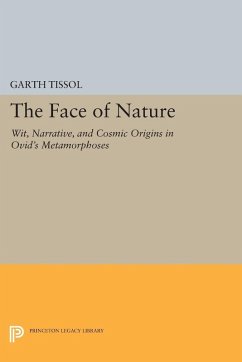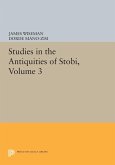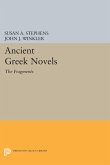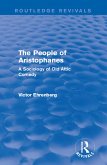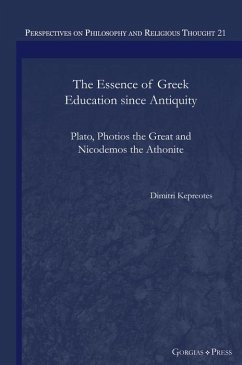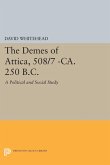In these reflections on the mercurial qualities of style in Ovid's Meta-morphoses, Garth Tissol contends that stylistic features of the ever-shifting narrative surface, such as wordplay, narrative disruption, and the self-conscious reworking of the poetic tradition, are thematically significant. It is the style that makes the process of reading the work a changing, transformative experience, as it both embodies and reflects the poem's presentation of the world as defined by instability and flux. Tissol deftly illustrates that far from being merely ornamental, style is as much a site for interpretation as any other element of Ovid's art.
In the first chapter, Tissol argues that verbal wit and wordplay are closely linked to Ovidian metamorphoses. Wit challenges the ordinary conceptual categories of Ovid's readers, disturbing and extending the meanings and references of words. Thereby it contributes on the stylistic level to the readers' apprehension of flux. On a larger scale, parallel disturbances occur in the progress of narratives. In the second and third chapters, the author examines surprise and abrupt alteration of perspective as important features of narrative style. We experience reading as a transformative process not only in the characteristic indirection and unpredictability of Ovid's narrative but also in the memory of his predecessors. In the fourth chapter, Tissol shows how Ovid subsumes Vergil's Aeneid into the Metamorphoses in an especially rich allusive exploitation, one which contrasts Vergil's aetiological themes with those of his own work.
Originally published in 1997.
The Princeton Legacy Library uses the latest print-on-demand technology to again make available previously out-of-print books from the distinguished backlist of Princeton University Press. These editions preserve the original texts of these important books while presenting them in durable paperback and hardcover editions. The goal of the Princeton Legacy Library is to vastly increase access to the rich scholarly heritage found in the thousands of books published by Princeton University Press since its founding in 1905.
In the first chapter, Tissol argues that verbal wit and wordplay are closely linked to Ovidian metamorphoses. Wit challenges the ordinary conceptual categories of Ovid's readers, disturbing and extending the meanings and references of words. Thereby it contributes on the stylistic level to the readers' apprehension of flux. On a larger scale, parallel disturbances occur in the progress of narratives. In the second and third chapters, the author examines surprise and abrupt alteration of perspective as important features of narrative style. We experience reading as a transformative process not only in the characteristic indirection and unpredictability of Ovid's narrative but also in the memory of his predecessors. In the fourth chapter, Tissol shows how Ovid subsumes Vergil's Aeneid into the Metamorphoses in an especially rich allusive exploitation, one which contrasts Vergil's aetiological themes with those of his own work.
Originally published in 1997.
The Princeton Legacy Library uses the latest print-on-demand technology to again make available previously out-of-print books from the distinguished backlist of Princeton University Press. These editions preserve the original texts of these important books while presenting them in durable paperback and hardcover editions. The goal of the Princeton Legacy Library is to vastly increase access to the rich scholarly heritage found in the thousands of books published by Princeton University Press since its founding in 1905.
Dieser Download kann aus rechtlichen Gründen nur mit Rechnungsadresse in A, D ausgeliefert werden.

